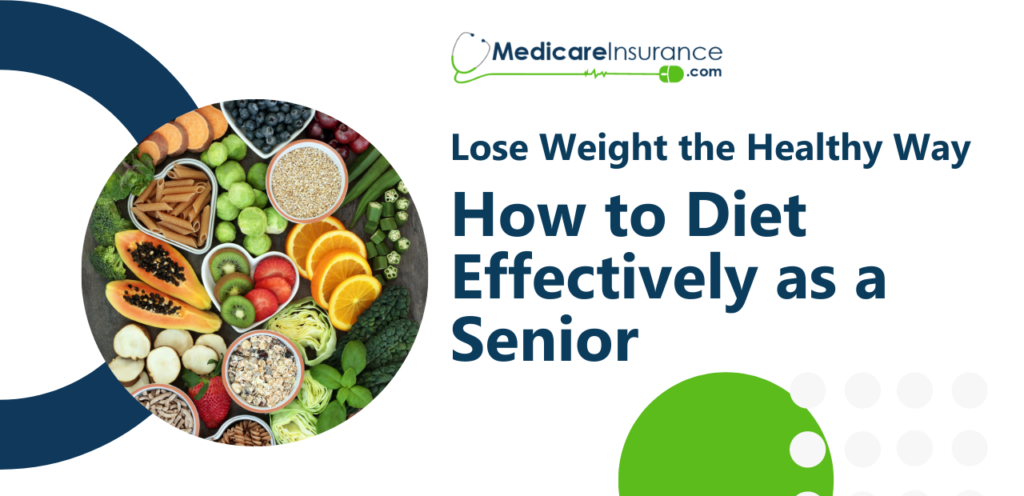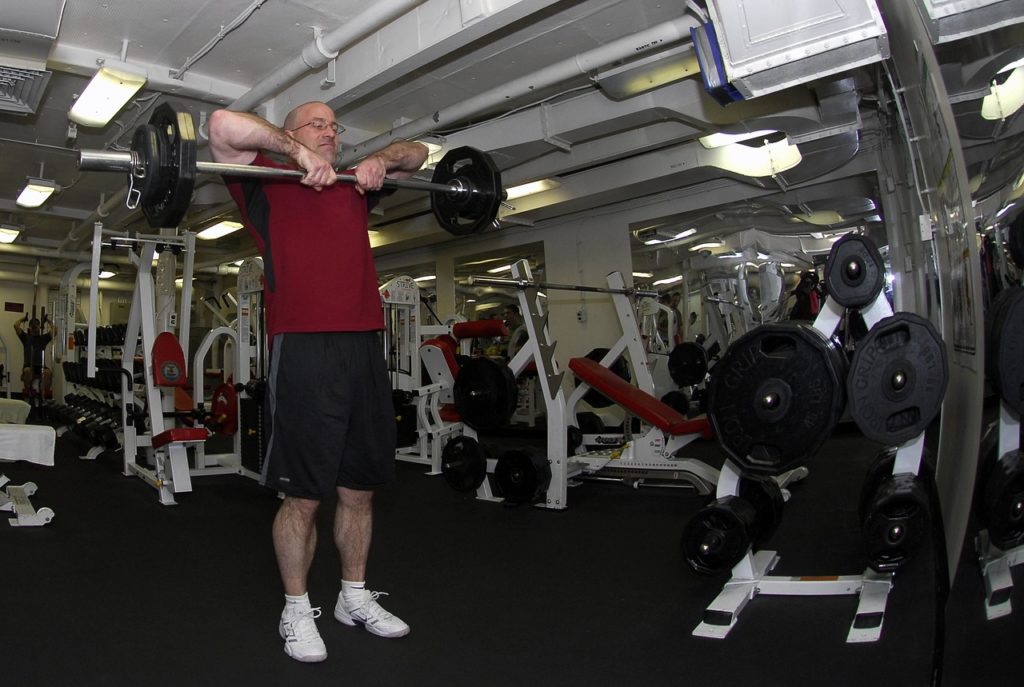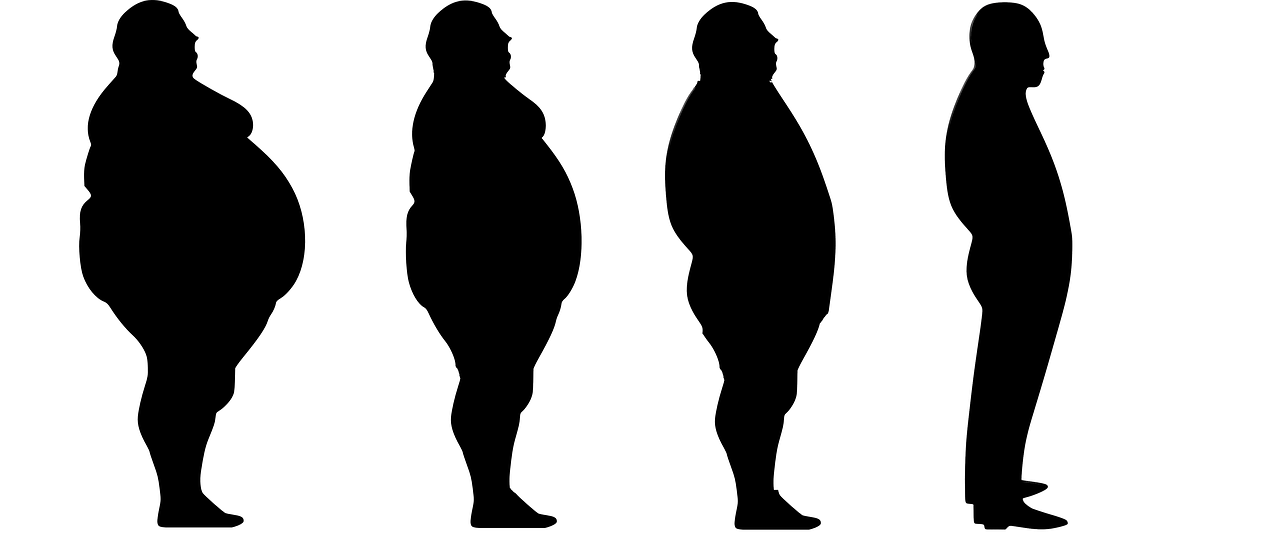Lose Weight the Healthy Way & Diet Effectively as a Senior!
“I’m old, why should I care about dieting now?”
Plenty of people consider weight loss to be a purely cosmetic endeavor, but the reality is, maintaining a healthy weight and diet is incredibly vital to your overall health and happiness, especially when you reach retirement age.
Just because you’re getting older, doesn’t mean you should completely let yourself go. In fact, this common occurrence can likely be directly attributed to a dramatic increase in health problems after 65 years of age.
How might age affect proper senior nutrition?

As we get older, our bodies become less resilient and more susceptible to injury and illness. For this reason, proper nutrition and maintaining a healthy weight is incredibly important as we age.
The following factors are just a few age-related issues that may impact your ability to stay nourished throughout your golden years.
Medication Side Effects
Many seniors regularly rely on prescription medications to manage chronic health conditions. Government-sponsored programs like Medicare (specifically, Medicare Part D) have made great strides in reducing the financial burden on seniors who rely on prescription medications, but what about the side effects associated with the medicines themselves?

Certain medications can sometimes directly affect your appetite and your body’s ability to absorb nutrients. Additionally, some medications may result in nausea or changes in food taste perception. After a while, this may discourage you from eating well-balanced meals.
Dental Health Concerns
Unfortunately, aging is often accompanied by issues with your teeth and mouth. Sometimes, these issues can result in missing teeth, receding gums, and jaw soreness. Over time, this can make it more challenging to consume a wide variety of healthy foods, including fresh fruits and vegetables.

Physical and Cognitive Limitations
The older we are, the more susceptible we become to mobility issues, whether it be as a result of arthritis, balance difficulties, or physical injury. Additionally, aging can often result in reduced cognitive ability, including issues with memory loss, dementia, Alzheimer’s, or depression.
Over time, these issues can make even the simplest tasks seem impossible, and tasks that may have once been simple, like standing for long periods of time while cooking or carrying in grocery bags from the car, can be overwhelming.
What nutrients should I strive for when attempting to properly lose weight as a senior?
The best way to increase your longevity and promote happiness and wellness is to adhere to a responsible diet throughout your golden years. That means eating balanced meals or following an organized elderly nutrition program, which typically includes foods that are rich in the following key nutrients:
Omega-3s
Omega-3 fatty acids have been shown to correlate with a lower risk of cancer, heart disease, and cognitive decline. For these reasons, nutritionists recommend consuming a serving of omega-3s at least twice a week.
Foods rich in this vital nutrient include salmon, sardines and tuna, seeds and nuts like walnuts and flaxseed. Other foods like avocado, soybeans, and canola oil also contain Omega 3.

Fibre
Unfortunately, aging can also disrupt our ability to properly digest. As we get older, the walls of the gastrointestinal tract thicken, slowing contractions and possibly leading to constipation.
Foods rich in fibre, like whole grain pasta and bread, nuts, and natural fruits and vegetables, can make a huge difference when it comes to keeping our digestive system in shape and lowering the risk of digestive conditions.
Iron
Iron is an especially important nutrient for the human body. Mainly, it is responsible for the production of haemoglobin. This carries oxygen from the lungs into our blood and to all the organs of our body.
Without proper amounts of iron, the body has only a limited supply of oxygen for its various body tissues. This often results in fatigue and lethargy. High-iron foods, like beans, broccoli, spinach, poultry, and red meat, can combat this issue.
In some cases, individuals with iron deficiency may require additional support, such as iron infusions in Dallas. This can be an effective way to increase iron levels and alleviate symptoms of iron deficiency, such as fatigue and weakness. However, it’s essential to speak with a healthcare professional before considering iron infusions or any other iron supplement to determine if it’s appropriate for your individual needs.

Magnesium
Did you know that over 300 of your body’s crucial functions rely on magnesium to operate properly? In addition to strengthening bones, magnesium is responsible for keeping your heart and immune system healthy and strong.
As we age, our ability to absorb magnesium from the foods we eat decreases naturally, as do many common prescription medications. For this reason, high amounts of magnesium-rich foods, like whole grains, nuts, fresh fruits and vegetables, are often beneficial.
What can I do to ensure I stay as healthy as possible as I get older?
Taking care of our bodies, whether through proper nutrition or exercise, should be a priority. However, the older we get, the more challenging it can be to lose weight as a senior.

Luckily, there are a variety of diet and exercise programs, like SilverSneakers for example, that aim to help seniors with this exact aspect of their lives. The best news? Many of these programs are covered by comprehensive Medicare Advantage plans.
If you’re interested in learning more about your options for health and wellness maintenance under Medicare, don’t hesitate to contact a licensed insurance agent or Medicare Advantage expert, such as those available at MedicareInsurance.com, today.




